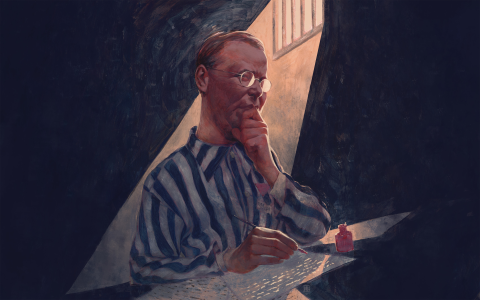Last week, I kept pondering this question: When Hitler died in 1945 and the war ended swiftly, what were ordinary German citizens really feeling? Did they feel instantly relieved, like turning off an alarm clock? Or was the reality far more complex than we imagine? To get to the bottom of this, I spent considerable time researching and uncovered some surprisingly real stories.
At first, I couldn’t find the “ordinary people’s” voices
Initially, I searched online for keywords like “How Germans felt after Hitler’s death” or “The feelings of ordinary people when WWII ended.” The results? Almost all the content focused on military strategy, politics, or the decisions of major figures. For example, “How the Allies advanced,” “When Germany surrendered”… These are important, of course, but what I wanted to know was: What did ordinary people living in Berlin, Hamburg, or Munich—like a baker, a teacher, or a mother—think when they heard Hitler was dead? When Did Germany Surrender?“… These are important, of course, but what I wanted to know was: what were the first reactions of ordinary people living in Berlin, Hamburg, or Munich—like a baker, a teacher, a mother—when they heard Hitler was dead and the war was over?
After scouring countless web pages, I found almost no such details. History books focus too much on the ”big picture“ and rarely touch on the emotions of ”ordinary people.”
Later, I found answers in old letters and diaries
Unsatisfied, I tried a different approach. Suddenly, I remembered someone mentioning wartime private letters and diaries. So I began sifting through publicly available materials from universities and archives. Honestly, it was tough work—some handwriting was messy, and the scanned copies were blurry, making them incredibly hard to read.
But gradually, I began to hear authentic voices:
“We heard on the radio that Hitler was dead… Our neighbor burst into tears right then and there.”
“Finally, no more hiding from air raids—but our house is gone.”
“I can’t believe it’s true. Is the war really over?”
Unlike the uniform narratives in textbooks, these words felt profoundly authentic. They contained no grand narratives, only the confusion, exhaustion, and even helplessness of ordinary people confronting cataclysmic change.
Allied Reports Reveal More Complex Emotions
To verify whether these feelings were widespread, I also consulted reports written by Allied forces after occupying Germany in 1945. These reports documented interviews with German civilians, and their content astonished me—people’s emotions weren’t simply “happy” or “sad,” but a complex blend of several feelings:
- Relief: Many said, “It’s finally over! No more living in fear.”
- Fear: Especially among eastern residents, who worried about Soviet Red Army reprisals.
- Numbness: After six years of war, with loved ones dead and homes destroyed, many said, “I’m too exhausted to feel anything.”
- Skepticism: Some refused to believe Hitler was truly dead, suspecting it might be a rumor.
- Shame: Others began reflecting: “What have we done? How did it come to this?”
You see, this isn’t a story where everyone suddenly rejoiced at the flip of a switch. On the contrary, though the fighting had stopped, life was far from returning to normal. Food shortages, destroyed homes, separated families—and now foreign soldiers suddenly appearing on the streets. No one knew what tomorrow would bring.
Ending the War ≠ Ending Suffering
It took me several nights to organize these materials, and I finally grasped one thing: The war’s swift conclusion did save many lives, but it didn’t immediately bring happiness or hope.
For ordinary Germans at the time, it felt more like a nightmare that had dragged on for years suddenly ending. You’d just jolted awake from the dream, your heart still racing, surrounded by devastation, unsure what to do next. There was a sense of relief, but it was quickly crushed by the weight of reality.
So when we say “the war is over” today, let’s not forget the struggles of countless ordinary people behind those words. They weren’t just numbers in history books—they were flesh-and-blood individuals who felt fear, regret, and exhaustion.
Perhaps understanding this is the most important way we can remember history.

